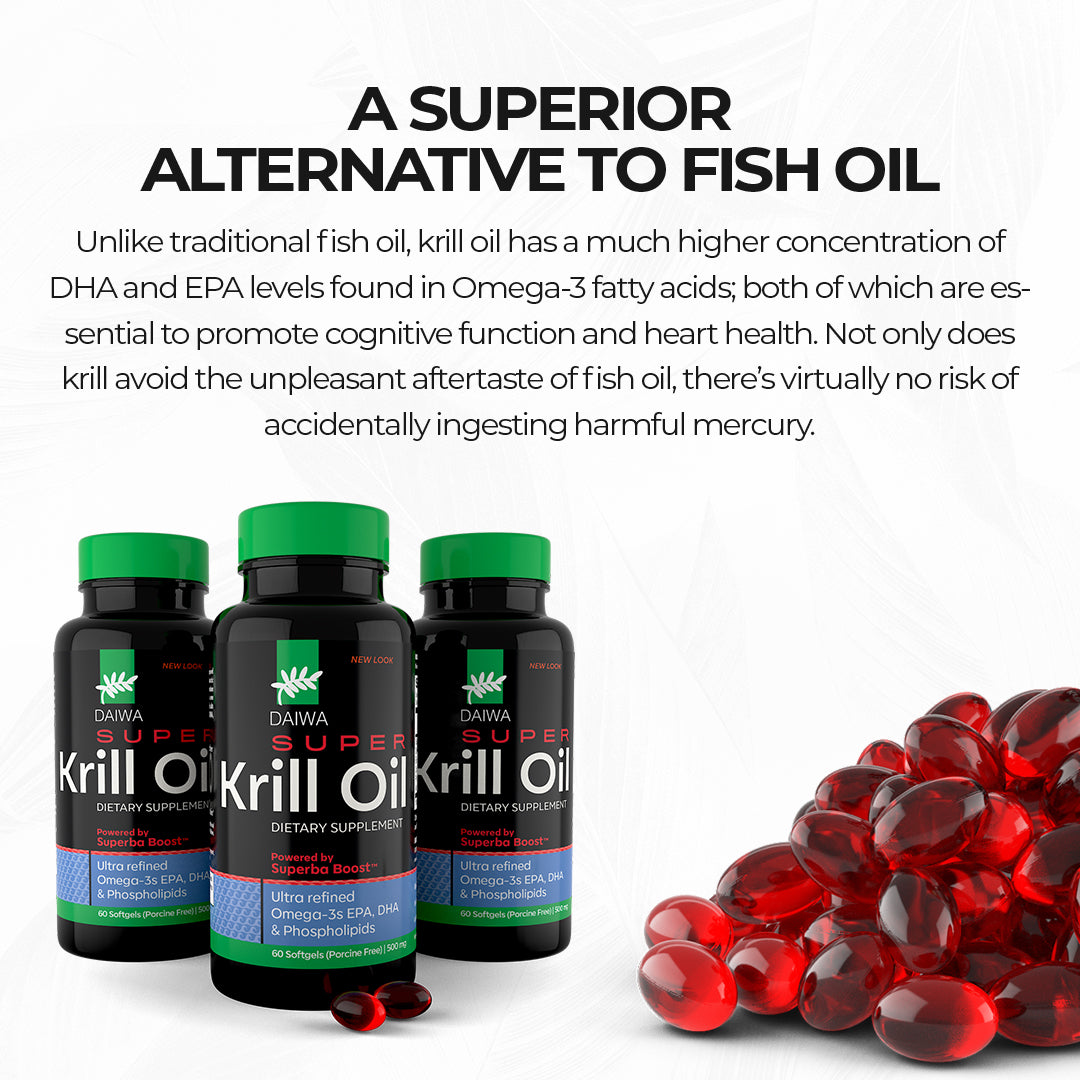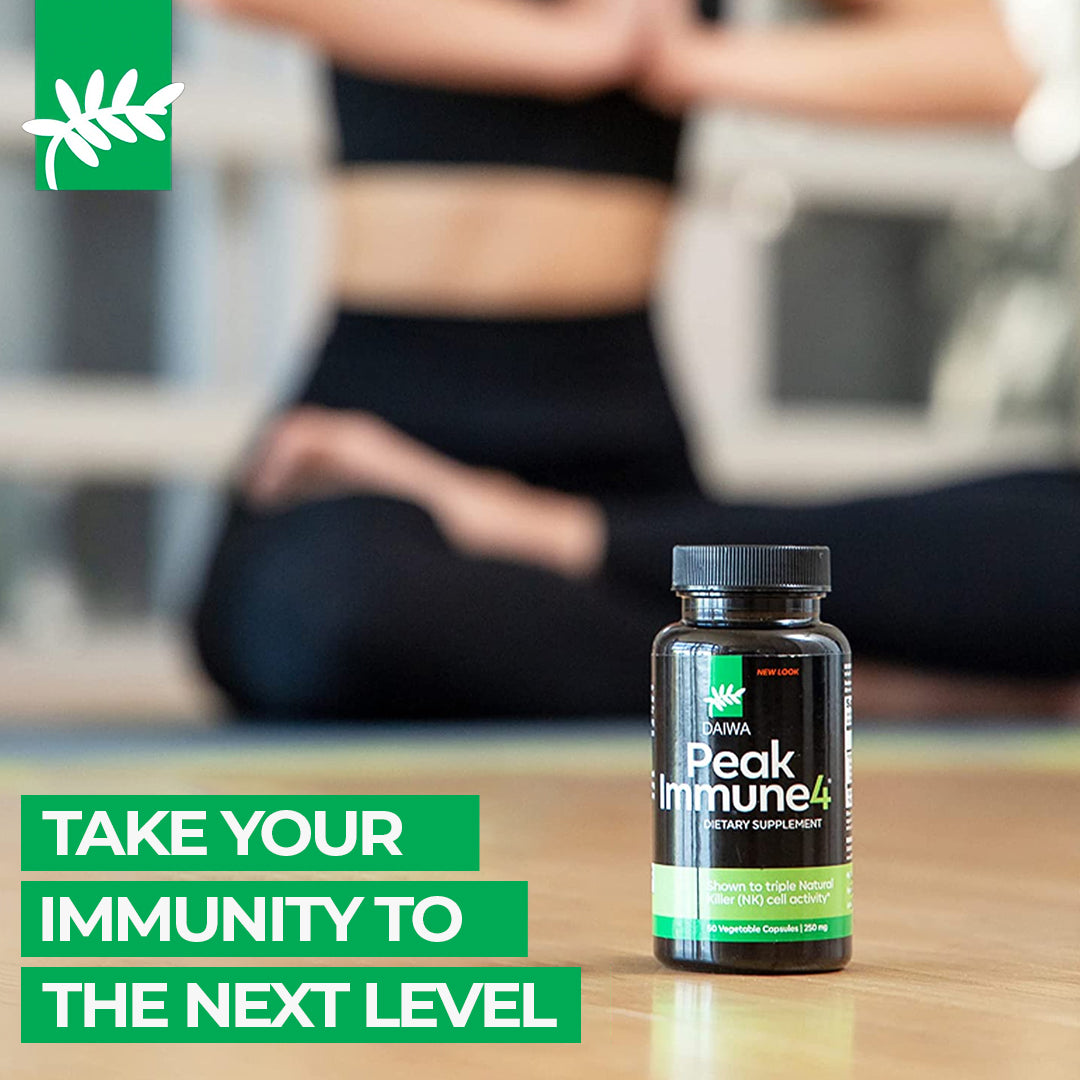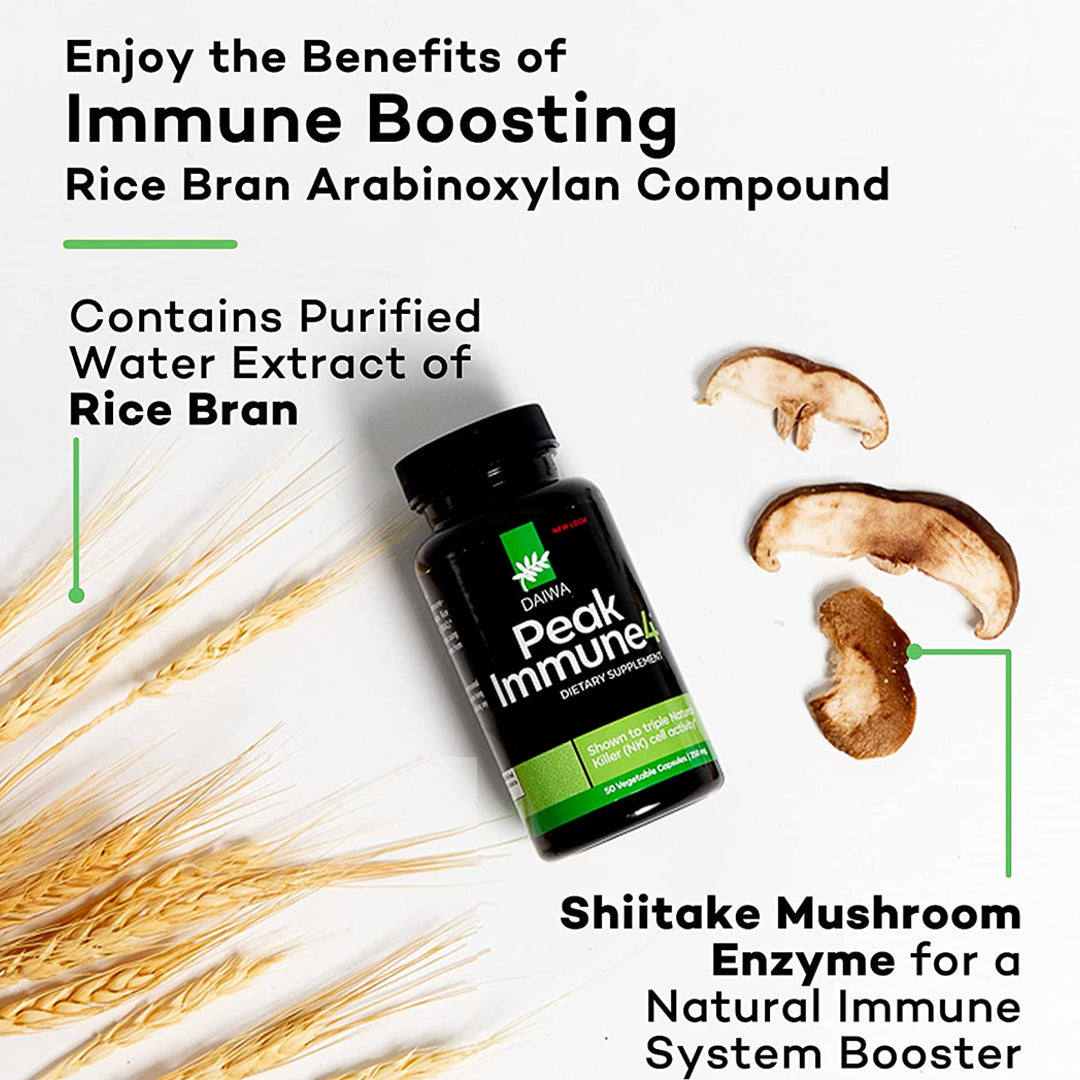Fish oil is a product that is widely available in stores under many different brands. It is commonly promoted for its ability to support heart and brain health, manage inflammation, and help maintain cholesterol levels within a healthy range. But while it’s proven to give your body benefits, is it worth the investment?
Considering the wide availability and affordability of fish oil, many question if it really is a supplement that can promote heart health to significant degrees. If you are among these people, there is an alternative that you could look into, known as krill oil. Krill are small crustaceans that resemble shrimp. Most krill oil is sourced from Antarctic krill, which are found in the Antarctic Ocean and are valued for their unique nutritional profile, including omega-3 fatty acids, phospholipids, and astaxanthin.
While they are a canned delicacy in some countries, their fluids are made into supplements here in America. Antarctic krill oil is considered a premium supplement due to its superior absorption and health benefits.
Krill oil is commonly available in the form of krill oil capsules or soft gels.
What Is Krill Oil?
Krill oil is another type of soft-gel supplement that can be consumed orally, like fish oil. As a popular krill oil supplement, it is widely used as a nutritional supplement for heart and skin health. It is not as common as other cholesterol products on the market, but independent tests suggest that krill oil is more effective in maintaining cholesterol than its fish counterpart. Both products contain Omega-3 fatty acids, phospholipids and other ingredients designed to give the user health benefits, but many experts favor krill as the recommended product to consumers. Key krill oil benefits include supporting healthy cholesterol levels, joint function, and skin health. Daiwa Krill Oil is a reputable brand of krill oil supplement available on the market. Phospholipids in krill oil are key components of cell membranes, which enhances the bioavailability of nutrients and supports the delivery of active compounds for improved health outcomes.
General Benefits of Krill Oil
Krill oil supplements offer a wide array of health benefits that go beyond just supporting healthy cholesterol levels. As a rich source of omega 3 fatty acids—specifically eicosapentaenoic acid (EPA) and docosahexaenoic acid (DHA)—krill oil plays a vital role in maintaining heart health, supporting brain function, and managing chronic inflammation throughout the body. Unlike traditional fish oil, the omega 3 fatty acids in krill oil are delivered in a phospholipid form, which allows for superior absorption and more efficient delivery to body tissues.
One of the standout features of krill oil is the presence of astaxanthin, a powerful antioxidant that helps protect cells from oxidative stress and damage. This unique combination of essential fatty acids and antioxidants makes krill oil a valuable addition to your daily routine. Research has shown that krill oil supplements can help maintain healthy cholesterol levels, ease symptoms of arthritis, and even provide relief for premenstrual syndrome. By choosing krill oil over standard fish oils, you may experience enhanced benefits thanks to its better absorption and potent nutritional profile.
Three Parts Of Total Cholesterol
One of the key selling points in krill oil is how it works to maintain healthy cholesterol levels more effectively compared to fish oil. For those who aren’t familiar with the composition of cholesterol, it is made up into three parts:
LDL is low-density lipoprotein. This is considered “bad” cholesterol. Most of your total cholesterol consists of LDL, and if there is too much for your body to handle, you could be at risk for heart problems such as cardiovascular disease and stroke. High LDL is a major risk factor for heart disease.
HDL is high-density lipoprotein. This is considered “good” cholesterol. HDL is used to absorb LDL and transfers it to the liver, which will work to purge it from the body. Raising your HDL will reduce your risk of the aforementioned heart problems.
Finally, there are triglycerides, another harmful aspect of cholesterol that comes in the form of fat that lives inside the bloodstream. While triglycerides can be formally measured by testing, symptoms of high levels of triglycerides include chest pain and pancreatitis. It is important to monitor the types of foods you consume, especially those high in fat or cholesterol, to help manage triglyceride levels.
Dietary supplements, including krill oil, can be part of a comprehensive approach to managing cholesterol, alongside diet and lifestyle changes.
How To Determine Your Cholesterol Levels
Unlike with height or weight, there is no simple way to measure cholesterol on your own. You can find out your body's levels by conducting a blood test with your doctor. While these tests results vary depending on your doctor or medical practice, your doctor would be able to give you a clear indication if you need to work towards lowering these levels.
How Krill Works To Improve Cholesterol
While krill concentrate is still being studied and tested to prove its full range of benefits for consumers, many krill oil manufacturers and merchants claim that its effects are greater in reducing HDL compared to fish varieties. One of the key selling points in krill oil is how it works to maintain healthy cholesterol levels more effectively compared to fish oil. Oil use, particularly krill oil, has been associated with improved heart health outcomes.
Both krill and fish products contain Omega-3 fatty acids. There are two primary types of acids that each of them consist of: Docosahexaenoic acid (DHA) and Eicosapentaenoic acid (EPA). These two acids are known to diminish triglycerides and to manage inflammation, which are two things that are detrimental to a person’s blood vessels. The omega 3 fatty acid content in krill oil is a key factor in its health-promoting properties.
What is different about krill concentrate, however, is that its fatty acids are more absorbable inside a person’s body and contain more antioxidants. What these factors mean is that the concentrate is likely to do more and be put more to use when inside your body, in comparison to fish oil. Clinical trials have demonstrated the efficacy of krill oil in maintaining healthy cholesterol and providing similar benefits to those seen with fish oil.
Therefore, if you consume krill oil, more of the substance inside of its soft gel coating will work inside your body. With fewer antioxidants and less absorption in fish oil, a percentage of that substance may go unused, being transported to the liver and turned to waste without interacting with the person’s bloodstream or vessels. With krill oil, consumers can count on working towards health milestones quicker by taking krill oil over its fish counterpart. Krill oil is also valued for supporting joint health, in addition to its cardiovascular benefits. However, caution should be taken with high doses of krill oil, as they may increase the risk of side effects such as bleeding or digestive issues.
Krill Oil and Immune System Support
As a dietary supplement, krill oil is gaining recognition for its ability to support and regulate the immune system. The omega 3 fatty acids found in krill oil, particularly EPA and DHA, are known for their anti inflammatory properties, which can help manage inflammation and promote faster healing in the body. These fatty acids work to modulate immune responses, helping to keep the immune system balanced and resilient.
In addition to its inflammation management, krill oil contains antioxidants that help protect immune cells from oxidative damage, further supporting their function. Krill oil can also be a valuable ally in maintaining overall immune health. By incorporating krill oil into your daily routine, you can help strengthen your immune system and support your body’s natural defenses, especially during times of increased stress or seasonal challenges.
Krill Oil’s Anti-Aging Effects
Krill oil is also celebrated for its anti aging benefits, particularly when it comes to skin health. The antioxidant astaxanthin, naturally present in krill oil, helps shield the skin from environmental pollution and oxidative stress, which are major contributors to premature aging. This protection can help reduce the appearance of fine lines and wrinkles, promoting a more youthful complexion.
Beyond its antioxidant power, the omega 3 fatty acids in krill oil support the skin’s natural barrier, improving hydration and reducing inflammation. This can be especially beneficial for those looking to improve skin health and manage skin conditions related to dryness or irritation. Emerging research also points to krill oil’s potential in supporting brain health as we age, possibly reducing the risk of cognitive decline. By adding krill oil to your daily regimen, you’re not only nourishing your skin but also supporting your body’s overall vitality and longevity.
What Should You Know When Taking Krill Oil For Cholesterol?
Dietary supplementation with krill oil can support cholesterol management as part of a broader health strategy.
While krill oil can be an effective contributor to improved HDL levels and promote heart health, it should not be the only treatment to achieve these goals. On its own, krill oil will have little to decent change in HDL and triglyceride levels, and other options to address high cholesterol levels, such as exercise and changes in diet, are recommended alongside taking krill oil. Older adults may particularly benefit from krill oil supplementation for heart and cognitive health.
Krill oil contains free fatty acids, which can support skin hydration and lipid balance. It may also support wound healing due to its inflammation management and lipid-supportive properties.
Before starting krill oil, inform your healthcare provider about all other medications you are taking to avoid potential interactions. Krill oil should be discontinued at least two weeks prior to any scheduled surgery to reduce the risk of bleeding. Be aware of the potential for serious side effects, especially at high doses or if you have allergies to marine products. Always consult your healthcare provider before using krill oil, especially during pregnancy or breast feeding.
What Krill Oil Products Are Recommended?
Daiwa Health Development offers and recommends Daiwa Krill Oil for maintaining healthy cholesterol already within the normal range. For those interested in cognitive support, Daiwa also offers Daiwa Brain Health®, a supplement designed to enhance memory and cognitive function.
Daiwa Krill Oil is considered to be very helpful. It is shown to provide better bio-availability compared to fish supplements. Daiwa Krill Oil has elevated levels of omega-3 essential fatty acids, also features no fishy aftertaste and is more easily absorbed into stomach fluids in comparison to fish supplements.
These claims have not been reviewed or approved by the Food and Drug Administration (FDA). This product is not designed to diagnose, treat, cure, or prevent any disease.
Conclusion: The Broader Impact of Krill Oil on Health
In summary, krill oil is a nutrient-dense dietary supplement that offers a wide range of health benefits. From supporting heart health and maintain healthy cholesterol to boosting the immune system and providing anti aging effects, krill oil stands out for its superior absorption and rich content of essential fatty acids and antioxidants. Whether you’re interested in taking krill oil for its specific health benefits or as part of a proactive wellness routine, it can be a valuable addition to your daily regimen.
As with any supplement, it’s important to consult with a healthcare professional before starting krill oil, especially if you are taking prescription medications or have underlying health conditions. By making krill oil a part of your health routine, you can take meaningful steps toward supporting your immune system, improving skin health, and promoting overall well-being. Embrace the benefits of krill oil and enjoy a healthier, more balanced lifestyle.








Leave a comment
All comments are moderated before being published.
This site is protected by hCaptcha and the hCaptcha Privacy Policy and Terms of Service apply.